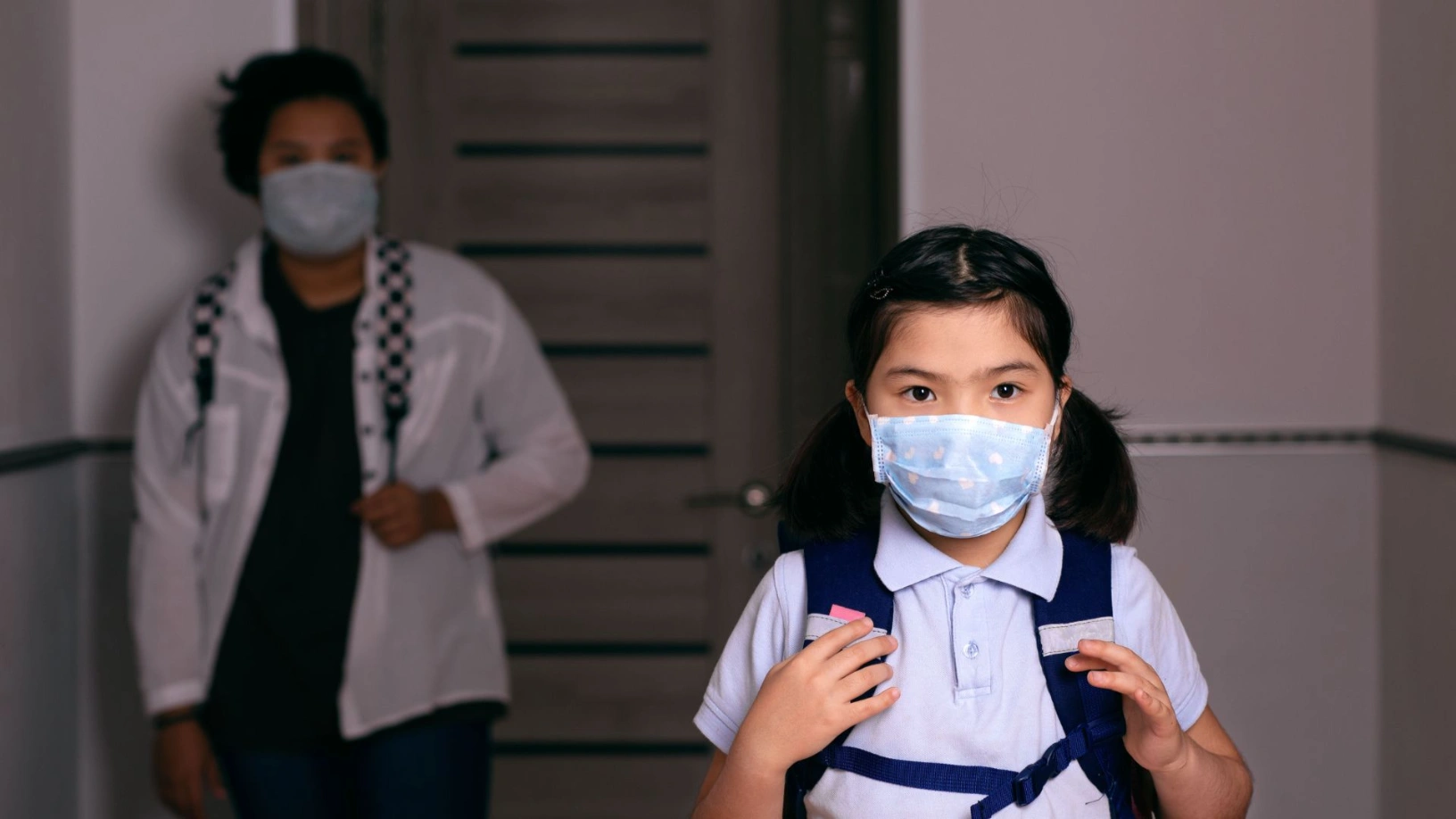The year 2021 was a pivotal moment for education, as the COVID-19 pandemic continued to challenge traditional learning environments and accelerated the evolution of educational practices. Researchers, educators, and policymakers faced an unprecedented set of circumstances that required innovative solutions, adaptations, and reflections on how to best educate in a rapidly changing world. Among the numerous studies published in 2021, some stood out for their far-reaching implications on the future of education, shaping how learning systems can evolve to meet new needs.
In this article, we highlight 10 significant studies that influenced the education field in 2021. These studies cover a range of topics, from remote learning effectiveness and digital equity to the impact of the pandemic on mental health and long-term academic achievement. Each study provides valuable insights into the challenges, opportunities, and transformations in education during a year of recovery and reinvention.
- The Impact of Remote Learning on Student Achievement
(Study by Brown University and the University of Virginia)
The shift to remote learning during the COVID-19 pandemic was one of the most significant education changes in 2021. A study conducted by researchers at Brown University and the University of Virginia examined the impact of remote learning on student academic achievement. The study found that remote learning disproportionately affected students from lower-income households, highlighting how digital equity—or the lack thereof—widened the achievement gap.
The research showed that students in districts with fewer resources faced challenges accessing reliable internet and devices, which significantly impacted their ability to participate in online learning. In contrast, students in more affluent districts who had access to better technology and educational support showed less of a decline in academic performance.
This study emphasized the need for investment in infrastructure to ensure all students have equal access to educational opportunities, particularly in a digital age. The study’s findings were instrumental in guiding policymakers and school leaders as they planned for the future of hybrid and remote learning.
- Learning Loss and Recovery Amid COVID-19
(Study by McKinsey & Company)
A major concern following the widespread closure of schools was the extent of learning loss experienced by students. McKinsey & Company released a comprehensive study in 2021 examining the long-term impact of school closures on student learning outcomes, particularly in math and reading.
The study found that, on average, students lost between 5 and 9 months of learning due to disruptions caused by the pandemic. Students from low-income backgrounds, students of color, and those with disabilities experienced the greatest losses. The study also highlighted the importance of addressing learning loss through targeted interventions, such as summer learning programs, tutoring, and personalized learning initiatives.
In response to these findings, educators and policymakers have focused on implementing recovery plans that prioritize equity, ensuring that the most vulnerable students receive the support they need to catch up and thrive.
- The Role of Social-Emotional Learning in Post-Pandemic Recovery
(Study by CASEL and Collaborative for Academic, Social, and Emotional Learning)
As the pandemic took a toll on students’ mental and emotional well-being, researchers began to examine the importance of social-emotional learning (SEL) in the post-pandemic recovery process. A 2021 study by the Collaborative for Academic, Social, and Emotional Learning (CASEL) investigated how SEL programs could support students’ mental health and emotional resilience as schools returned to in-person instruction.
The study found that SEL programs, when implemented effectively, can improve students’ emotional regulation, interpersonal relationships, and overall academic performance. Moreover, schools that prioritized SEL saw improvements in student engagement and reduced behavioral issues. The study emphasized the need for schools to integrate SEL into their curricula, not just as a reaction to the pandemic, but as a core part of fostering holistic student development.
In light of these findings, many school districts increased funding for SEL programs and professional development for teachers in 2021, recognizing the critical role that social and emotional skills play in the recovery of the learning community.
- The Digital Divide and Educational Equity
(Study by Pew Research Center)
The digital divide, the gap between those with access to technology and those without, was exacerbated during the pandemic. A study by the Pew Research Center in 2021 explored how access to digital tools and reliable internet service affected students’ ability to engage with remote learning.
The findings revealed that millions of students in the U.S. lacked the necessary technology to participate in online classes, with Black, Hispanic, and rural students being the hardest hit. The study called for urgent action to close the digital divide by ensuring equitable access to devices, high-speed internet, and digital literacy training.
This research added further weight to ongoing discussions about digital equity and influenced decisions by school districts, government agencies, and private companies to prioritize investments in technology and infrastructure to support remote and hybrid learning models.
- Teacher Burnout and Well-Being During the Pandemic
(Study by the American Federation of Teachers and the National Education Association)
A study conducted by the American Federation of Teachers (AFT) and the National Education Association (NEA) in 2021 explored the growing issue of teacher burnout during the pandemic. The research found that teachers were experiencing unprecedented levels of stress due to the demands of remote teaching, adjusting to new technology, and managing students’ emotional needs.
The study highlighted the mental health challenges facing educators and the urgent need for better support systems, including mental health services, professional development, and more sustainable workloads. Teachers reported that while they were committed to their student’s success, the pandemic’s toll on their well-being made it harder to continue to provide high-quality education.
In response to these findings, many education systems began to prioritize teacher well-being, offering more mental health resources, flexible schedules, and professional development focused on resilience and self-care.
- The Effectiveness of Hybrid Learning Models
(Study by Harvard University’s Institute for Education Policy)
As schools began to reopen in 2021, hybrid learning models (a blend of in-person and online learning) emerged as a solution to accommodate diverse learning needs. A study by Harvard University’s Institute for Education Policy evaluated the effectiveness of hybrid learning in K-12 schools, focusing on student outcomes, teacher experiences, and engagement levels.
The research indicated that hybrid learning when implemented with careful planning and support, could offer flexible learning opportunities for students, especially those with health concerns or family obligations. However, the study also pointed out that hybrid learning posed significant challenges, including difficulties in maintaining engagement and ensuring equal access to resources for all students.
The study’s findings have encouraged school leaders to carefully consider how to implement hybrid models moving forward, ensuring that they are accessible, equitable, and effective for all learners.
- The Importance of Teacher-Student Relationships in Remote Learning
(Study by the University of Minnesota)
A 2021 study from the University of Minnesota explored how teacher-student relationships impacted student engagement and learning outcomes in remote learning environments. The study found that the quality of the teacher-student relationship was one of the most significant predictors of student success in virtual classrooms.
Students who felt supported and connected to their teachers were more likely to engage with the material, participate in class, and stay motivated. The study emphasized the importance of fostering strong, personal connections with students, even in digital environments. This finding led to renewed efforts to integrate relationship-building activities into virtual classrooms and encouraged educators to focus on emotional support alongside academic instruction.
- The Long-Term Effects of Pandemic-Era Learning on College Students
(Study by the National Bureau of Economic Research)
A study by the National Bureau of Economic Research (NBER) in 2021 examined the long-term effects of pandemic-era learning on college students, particularly focusing on academic achievement, mental health, and post-graduation outcomes. The research showed that students who spent more time in remote learning environments during the pandemic were more likely to experience academic setbacks, such as lower grades and delayed graduation.
Furthermore, the study revealed that the lack of in-person interaction and campus experiences during the pandemic negatively affected students’ mental health, leading to higher levels of anxiety and depression. The study called for universities to invest in programs that support the mental and academic well-being of students who experienced disruptions during their college years.
- Redesigning Assessment for the 21st Century
(Study by the Bill & Melinda Gates Foundation)
A 2021 study by the Bill & Melinda Gates Foundation explored how assessments could be redesigned to better serve 21st-century learners. The study argued that traditional forms of assessment, such as standardized tests, were inadequate for measuring skills like creativity, critical thinking, and collaboration.
The research suggested a shift toward more holistic, competency-based assessments that measure students’ abilities to apply knowledge in real-world contexts. It also emphasized the importance of formative assessments that provide ongoing feedback to students, helping them track their progress and adjust their learning strategies. The study advocated for a broader rethinking of assessment practices to align with the skills students need in the modern workforce.
- Reimagining the Future of Higher Education
(Study by McKinsey & Company)
In a final study of 2021, McKinsey & Company examined the future of higher education, focusing on how universities could adapt to the changing demands of students, employers, and the global economy. The research found that traditional models of higher education were increasingly out of sync with the needs of a rapidly evolving job market.
The study recommended that universities embrace flexible, lifelong learning models, expand access to non-degree credentials, and partner with industry to better align curricula with the skills needed in the workforce.
The findings pointed to a future where higher education is more personalized, accessible, and responsive to the demands of both students and employers.






0 Comments